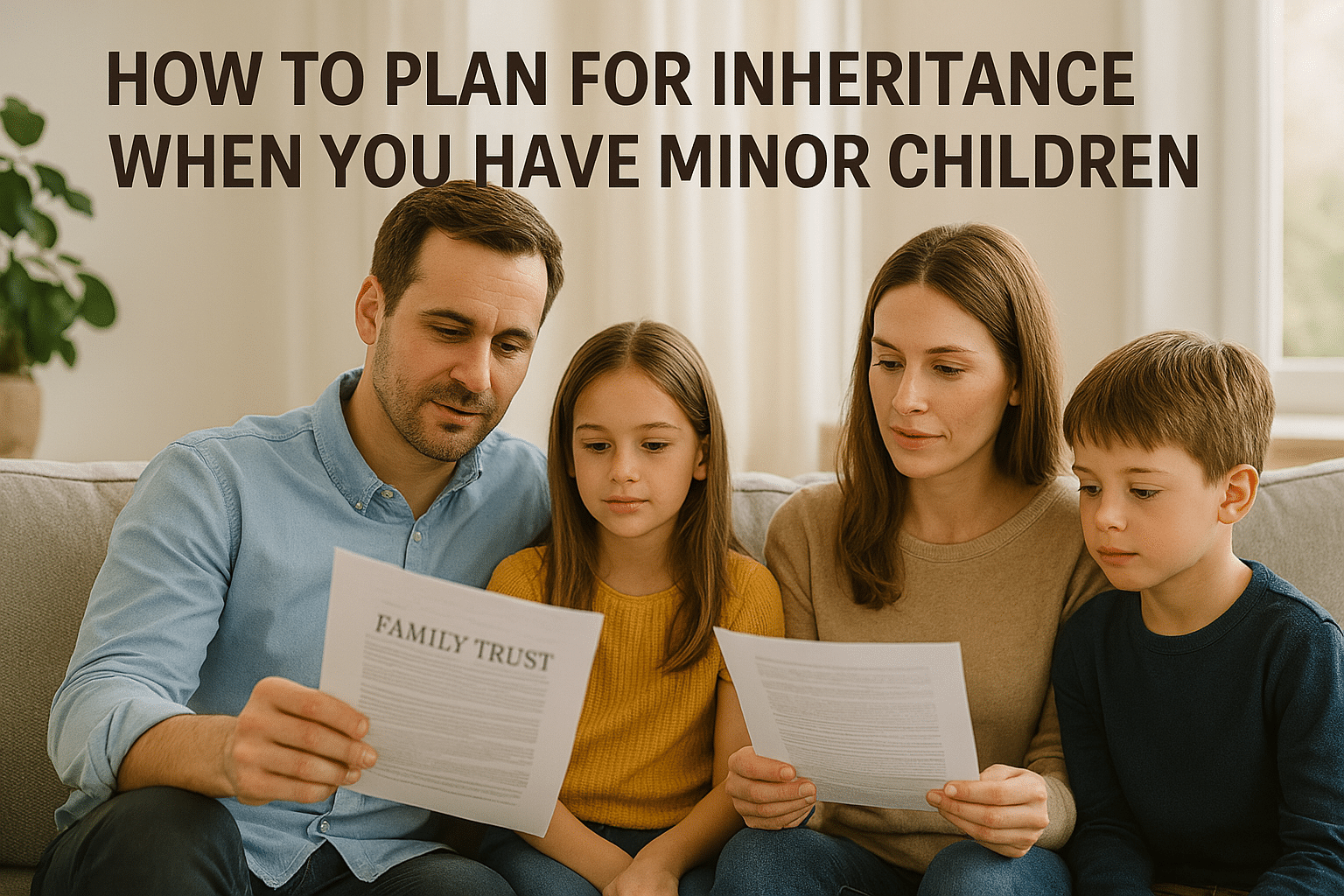If you have minor children, estate planning isn’t optional—it’s essential. Without a plan, the state—not you—will decide who cares for your children and how their inheritance is managed. That’s a risk most parents aren’t willing to take.
Here’s how to build an inheritance plan that protects your children, reflects your wishes, and avoids unnecessary court involvement.
What Happens If You Die Without a Plan?
In Georgia, if you die without a will (called dying intestate):
- Your children will still inherit a share of your estate.
- A court-appointed guardian will manage their inheritance until they turn 18.
- Once they reach 18, they’ll receive the entire amount—no restrictions.
That may sound fine on paper, but in practice, it can create problems:
- Courts may appoint a guardian you wouldn’t have chosen.
- An 18-year-old may not be ready to handle a large sum of money.
- There’s no control over how the inheritance is used.
Key Steps to Protect Your Children’s Inheritance
1. Create a Will and Name a Guardian
Your will should:
- Name a legal guardian to care for your children if you pass away.
- Designate someone you trust, who shares your values and is prepared for the responsibility.
- Include a backup guardian, in case your first choice can’t serve.
Without this, the court decides who raises your kids.
2. Use a Trust to Control the Inheritance
Rather than leaving assets directly to your children, create a revocable living trust or include a testamentary trust in your will.
A trust allows you to:
- Appoint a trustee to manage your children’s inheritance
- Decide when and how they receive funds (not all at once at age 18)
- Use the money for education, healthcare, housing, or other priorities
You can structure the trust so your children receive access to funds at certain ages (e.g., 25, 30), or tie distributions to milestones like graduation.
3. Avoid Naming Minor Children as Beneficiaries
Don’t list your children directly as beneficiaries on:
- Life insurance
- Retirement accounts (401k, IRA)
- Payable-on-death (POD) bank accounts
Why? Because they can’t legally own those assets—and a court would have to step in. Instead, name the trust as the beneficiary, with instructions for how the funds should be used.
4. Choose the Right Trustee
The trustee manages the assets in the trust for your children’s benefit. This person:
- Should be financially responsible
- Should follow your instructions, not their own opinions
- Can be a family member, friend, or even a professional trustee
Consider naming a backup trustee as well.
5. Review and Update as Life Changes
Your plan should grow with your family. Update it if:
- You have another child
- You move to a new state
- Your financial situation changes
- Your chosen guardian or trustee is no longer the right fit
Why You Shouldn’t Wait
No one likes thinking about worst-case scenarios, but estate planning isn’t about fear—it’s about responsibility. Planning for your children’s future shows love, foresight, and care.
You’re not just passing down assets. You’re passing down protection, structure, and guidance.
Let Hurban Law Help You Build the Right Plan
At Hurban Law, LLC, we help Georgia parents build estate plans that protect their children and reflect their values. We’ll guide you through naming guardians, setting up trusts, and making sure your children are provided for—no matter what.
Contact us today to create or update your plan with confidence.





